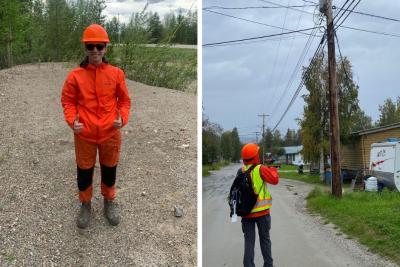YukonU is a hub for research and scholarly activity for students, faculty and YukonU Research Centre staff. YukonU Research Stories cover current research activities - for the North and beyond. Get inspired and start your own research project with our support.







